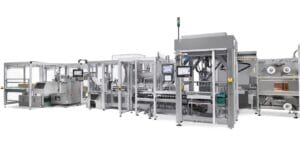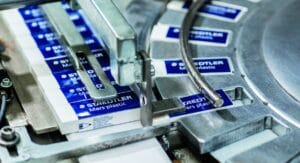
As part of its European Green Deal, the EU is pursuing ambitious plans to optimise the sustainability of packaging. This is also demonstrated by the new draft of the European Packaging Regulation (PPWR), which will have to be implemented by the member states once it has been adopted. On Tightly Packed TV Live at interpack, we talked about the current status with Dr Wolfgang Trunk from the EU Commission.
If it is up to the European Commission, the generation of packaging waste is to be reduced, a circular economy for packaging is to be developed in a cost-efficient manner and the use of recycled materials in packaging is to be promoted. This is provided for in the new draft of the European Packaging Regulation (PPWR), which still has to pass the EU Parliament and Council.
„The issue of packaging affects everyone, European consumers as well as the entire economy. Everyone is confronted with it, the topic is at the top of the agenda,“ says Dr Wolfgang Trunk, policy officer at the EU Commission in Brussels and team leader in the unit of the Directorate General Environment. The EU official was involved in the drafting of the bill from the very beginning. „The starting point was the question, what problem do we want to solve and why is this new legislation needed?“ In the current case, he said, it was quite obvious: „The current directive has not achieved its goal of reducing packaging waste in Europe and making packaging more sustainable. It was therefore time to think about further steps to improve the situation.“ It has not been easy to make such a proposal, especially during the Russian war of aggression and the high inflation rates, when many have to watch their budgets and expenses. „However, we are convinced that a European packaging regulation will bring great economic benefits.“
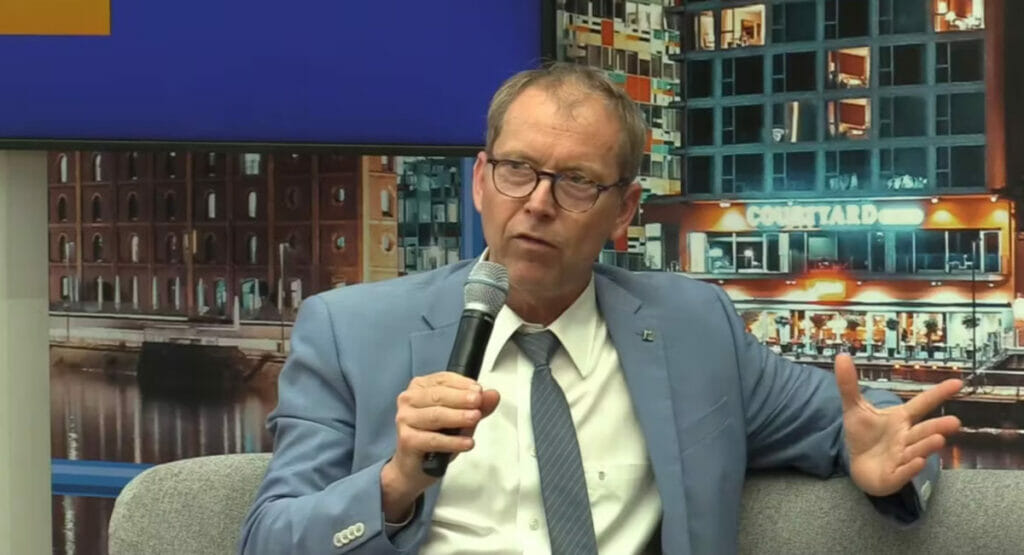
The current EU Packaging Directive has given member states a lot of leeway in how they develop their national systems within this framework. This has led to different situations within Europe, he said. „We have found that there is a big discrepancy between Member States in terms of how they achieve their targets. In addition, the industry is faced with national systems that cost a lot of money. It also means a huge administrative burden to deal with all the scattered legislation in the 27 Member States.“ Therefore, he said, it has become important to harmonise the rules via a regulation. „I call it a change in philosophy, in that we are moving beyond the member state level and going to the product level with the regulation. This changes the rules of the game, because we are going directly to the economic operators with our requirements. This is an important part of the new proposal.“
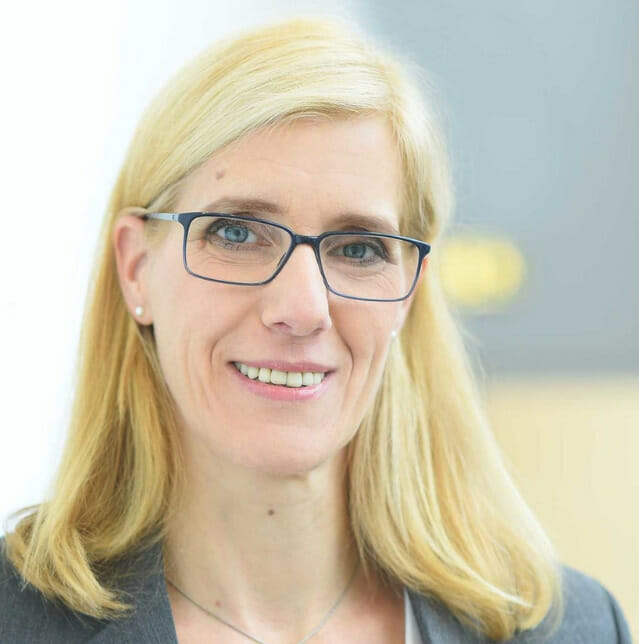
„I would like to issue a big warning to all those who want to wait and see. It is better to set up all the structures needed at an early stage – and to do so holistically. It’s not just about recyclate use and or recyclability. The whole package is important.“
Sonja Bähr, Packaging Consultant at Tilisco in the Tightly Packed TV Live Interview at interpack 2023
With its planned regulation, the EU Commission wants to keep an eye on the entire life cycle, starting with packaging design and ending with recycling. „Packaging design plays a special role when it comes to bringing valuable raw materials back into the cycle later at the end of use.“ The draft on the new PPWR contains a number of requirements and changes, for example regarding the recycled content in plastic packaging. „We know that plastic is something of our Achilles‘ heel, because we have too low a collection rate and too low a recycling rate for this valuable plastic packaging, which is often produced with a high input of fossil raw materials. In addition, the quality of the recycled plastic is often of low quality, we then have quasi downcycling. That is why our new proposal contains minimum requirements for the recycled content of plastic packaging. I am convinced that this will really make a difference and we can already see the impact the announcements have on the whole recycling value chain. Putting plastic waste into high-quality recycling is one of the most important points of the legislative proposal.“
„The PPWR will apply immediately and must be implemented. Pressure is being built up and the EU is determined, which we very much welcome. Keyword: introduction of recyclates. At first there was a huge outcry that polyolefins could not be used in contact with food. Maybe not today, but we now have to prepare the way to be able to meet the quotas by 2030.“
Sonja Bähr
Harmonised labelling
The new proposal also provides for a harmonised labelling system for packaging. Many companies had complained about the different national labelling rules. „The harmonised system will probably be based on pictograms. Therefore, you don’t even need a language,“ Trunk explains. „The respective pictogram will then in future not only be placed on the packaging, but also on the collection containers. With this, we are finally putting an end to consumer uncertainty, because they can see at a glance where packaging is to be disposed of properly.“ With great benefits also for the downstream value chain, because only with the right sorting in households will the recycling flows become more efficient, the quality of the recyclate better and the required quantities of recycled material achieved.
The planned Packaging Ordinance also regulates the handling of biodegradable, compostable packaging. „There is a lot of greenwashing going on here at the moment. With the new law we will overcome the grey areas, because in the future, it will be clearly defined what belongs in the biowaste stream and what belongs in the material recycling stream.“ Here, too, pictograms are to provide orientation for consumers.
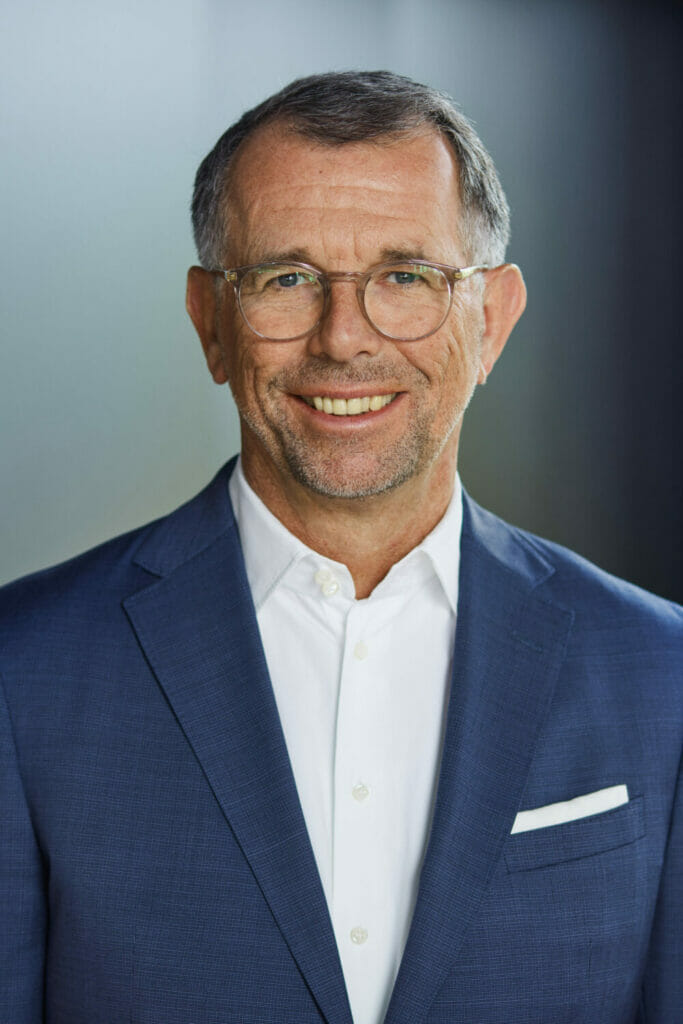
„We all live together in the EU and we need rules. That’s why the planned European packaging regulation is the right approach, but now we have to get down to the details. The VDMA had invited more than 50 EU politicians to present the challenges and solutions of the mechanical engineering industry to them in this context. Not a single one came.“
Christian Traumann, CEO of Multivac and board member of the VDMA Food Processing and Packaging Machinery Association on Tightly Packed TV Live at interpack 2023
„After all, our policy makers announced in 2022 that all packaging must be recyclable by 2030. We are aware that there is currently a lot of packaging that is very difficult to recycle. Therefore, in the future we will divide packaging into different categories. The lowest category will then be completely banned from the market. In this way, we get a kind of ranking for each packaging, according to which it is classified according to its recyclability. The packaging with the worst recyclability is then no longer allowed on the market.“ This should create an incentive to improve composite materials in beverage cartons, for example, until the required recyclability is achieved.
He said it is also important that under Extended Producer Responsibility (EPR), producers have to pay a fee for collection and later for end-of-life treatment, which is closely linked to recyclability. „If someone puts a mono-material on the market that is easy to recycle, the fee will be lower than if the packaging is difficult to recycle.“ In this way, the entire industry will be encouraged to further increase the recyclability of its packaging.
„Has the PPWR announcement caused an uproar? Yes, but not strongly enough yet. Individual associations from the plastics sector have spoken out, but I miss the outcry from the other associations. Many are not yet aware of the scope of what is coming. This affects not only the packaging-producing companies, but also their customers. We see cluelessness to the point of ostrich politics in some cases.“
Sonja Bähr
Keeping the helicopter view
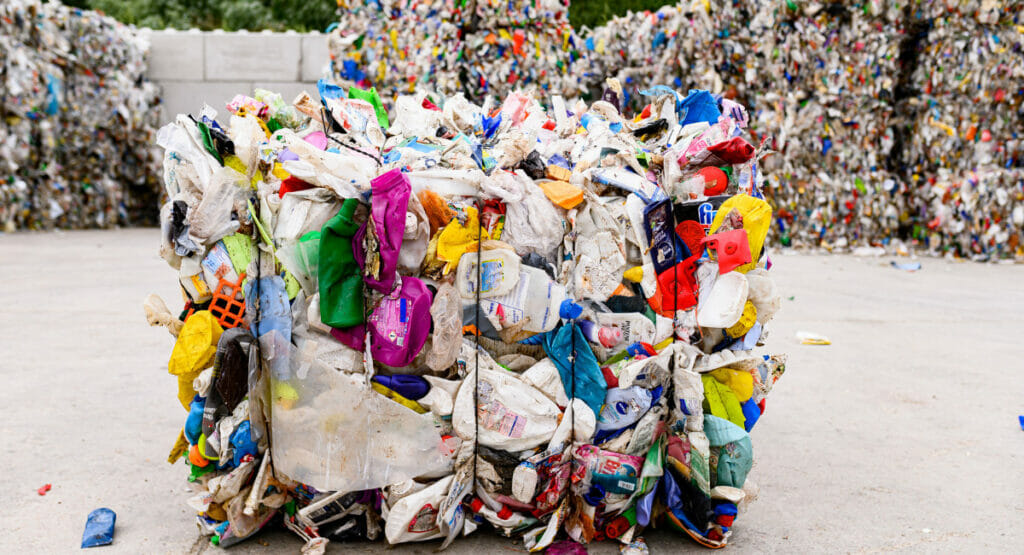
„According to our rules for better regulation, we have involved all stakeholders, the non-governmental organisations, the European associations, the national associations and the big companies from the very beginning. They were involved in the impact assessment and the drafting of the legislative proposal, because after all, we need their data as well as a comprehensive view, not just influence by individual interest groups. We need to keep the helicopter view, so to speak, and try to filter and process all this information.“
A total of 519 interest groups and consumer organisations responded to the call to provide feedback on the EU Commission’s draft and to submit requests for changes and improvements with constructive suggestions. „We improved the draft again with their help and were overwhelmed by the flood of feedback. Now the Commission’s proposal is ready and in the hands of the co-legislators. We as the Commission are now only a facilitator, accompanying the negotiations between the European Council and the Parliament.“
Industry support for the new approach has been strong, says Trunk. Industry and member states are aware of the importance of the new regulation, he says.
„This is a big step forward. And something will change in the national circumstances in the member states. In the future, with their market surveillance authorities, they will be the ones who will have to monitor our new rules and make sure that companies comply with all sustainability requirements. We believe that the industry is aware of the economic benefits and savings that will come with the new regulation. We are still open to further fine-tuning. But the baseline should be to get the regulation through within this legislature of the current European Parliament.“
Wolfgang Trunk
More packaging news

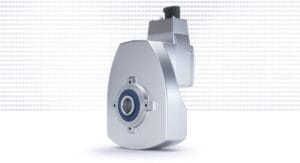
Asynchronous servo solutions for the packaging industry

Label Durability

More design for recycling for cosmetics packaging
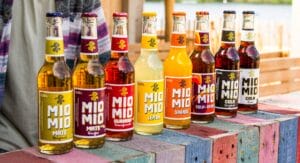
Innovation Barometer 2024
